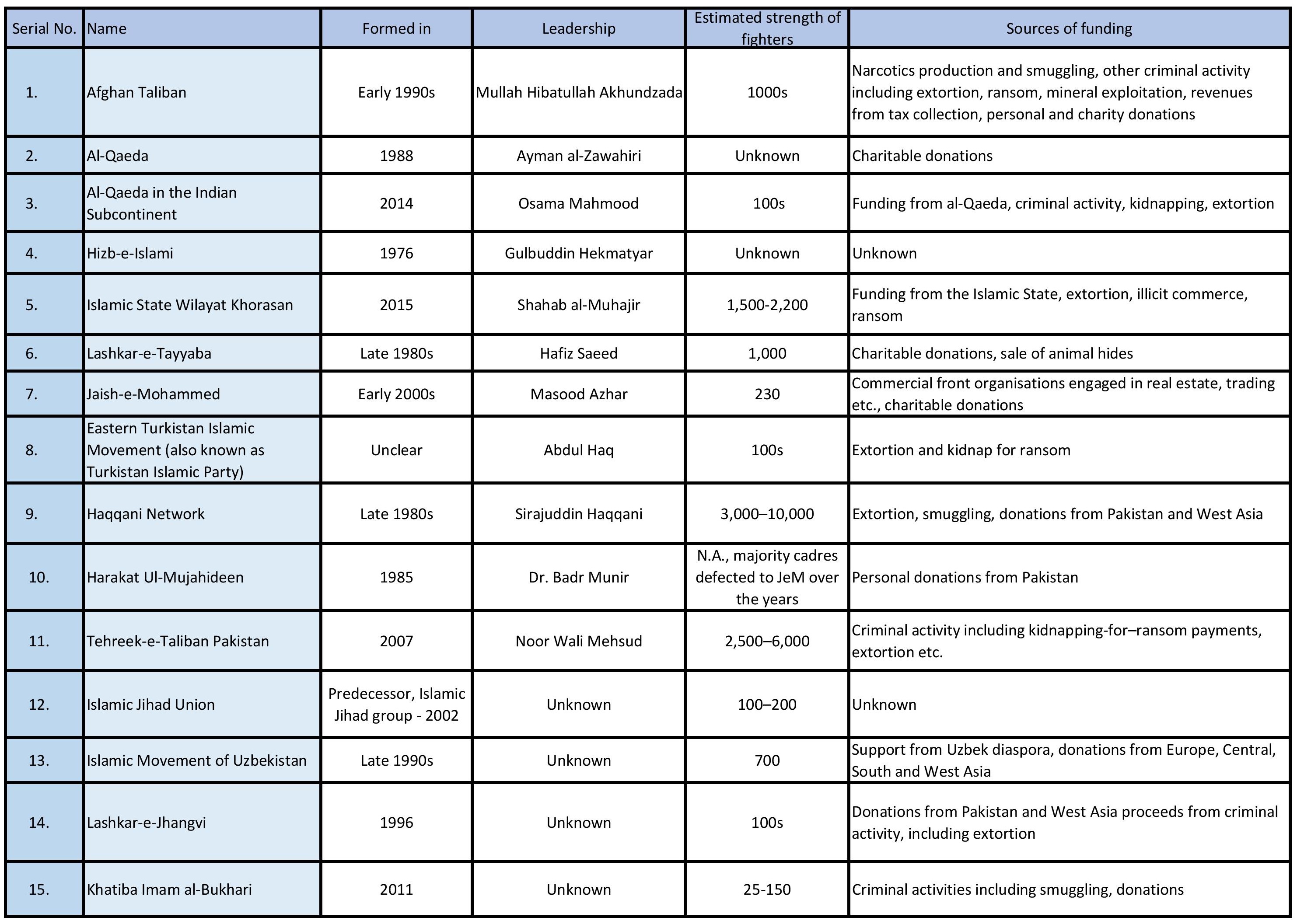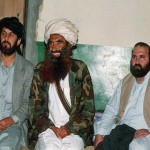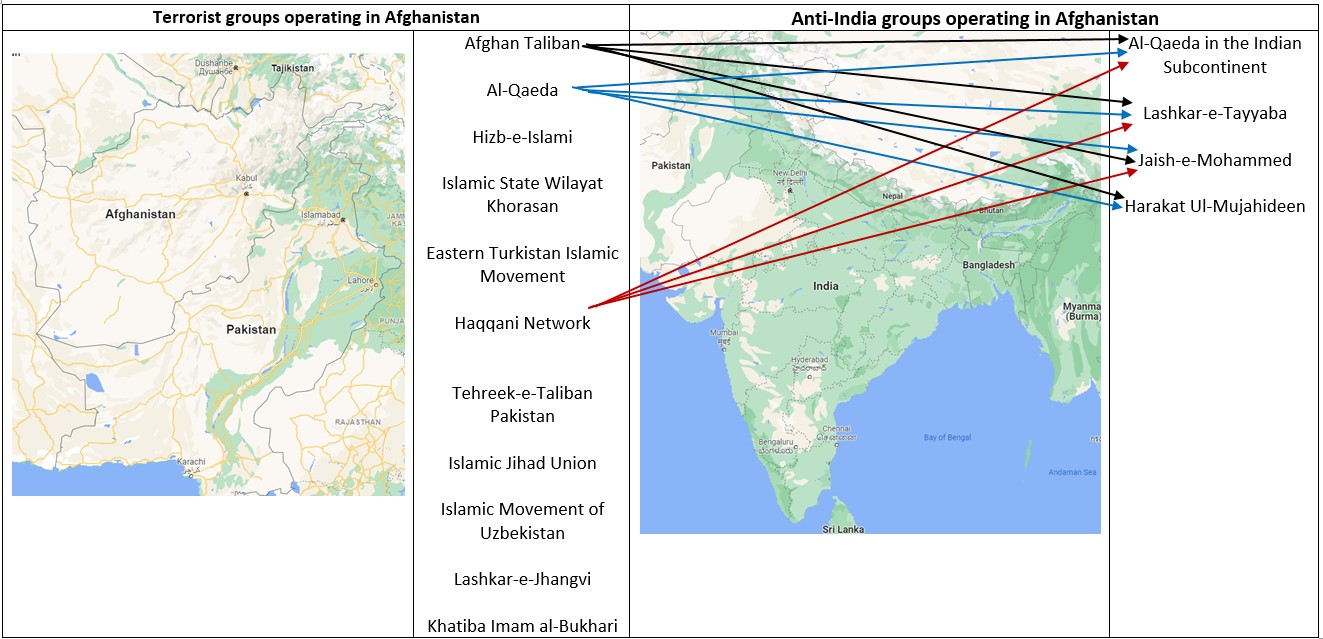The August 26 attacks on Kabul airport during the large-scale evacuation of international workers and troops and their Afghan associates, has revealed the alarming speed at which terrorist groups assembled and now operate on Afghan soil. The Islamic State Wilayat Khorasan, a franchise of the Islamic State, operating in Af-Pak region, has claimed responsibility for the attacks.
The group, which counter-terrorism experts previously thought to have dispersed, is active once again. They are not only operational, but may have tactical coordination and involvement with the factions of the Afghan Taliban and the Haqqani Network.
With these groups back in business, what does it mean for India?
Several of the terrorist groups have affiliations with those that seek specifically to harm India. Pakistan-based anti-India terrorist groups like the Lashkar-e-Tayyaba (LeT) and Jaish-e-Mohammed (JeM) have for years operated in Afghanistan, in association with the Afghan Taliban, the Haqqani Network and the al-Qaeda. They have already begun articulating their plans for India. Reportedly, JeM chief Masood Azhar met Afghan Taliban leaders to seek the latter’s help for operations in the Kashmir Valley. There is a possibility that the LeT and the JeM may escalate their operations, taking inspiration from the Taliban’s success.
The terrorist groups operating in Afghanistan can be divided into four categories:
- 1. Pan-Islamic groups – Afghan Taliban, Al-Qaeda and the Islamic State Wilayat Khorasan;
- 2. Taliban-affiliated groups: Haqqani Network, Hizb-e-Islami,
- 3. Regional groups: Tehrik-e-Taliban Pakistan, Lashkar-e-Jhangvi, Eastern Turkistan Islamic Movement, Islamic Jihad Union, Islamic Movement of Uzbekistan, Khatiba Imam al-Bukhari
- 4. Anti-India groups: Lashkar-e-Tayyaba (LeT), Jaish-e-Mohammed (JeM), Al-Qaeda in the Indian Subcontinent (AQIS), Harakat Ul-Mujahideen.
The return of the Taliban will lead to the resurgence of many of these groups, in particular al-Qaeda, which has waited in the shadows for a decade since the killing of Osama bin Laden in 2011 in Abbottabad, Pakistan.[1] A crucial part of the U.S.-Taliban deal signed in Doha in February 2020 required the Taliban to disallow al-Qaeda from using Afghan territory for its operations, and sever its relationship with al-Qaeda.[2]
However, a June 2021 report on terrorism in Afghanistan by the United Nations’ Analytical Support and Sanctions Monitoring Team, said the disassociation is unlikely and that al-Qaeda has continued to celebrate “developments in Afghanistan as a victory for the Taliban’s cause and thus for global radicalism.”[3] The group recently congratulated the Islamic Ummah for the Taliban’s ‘victory’ and called for ‘liberation of Kashmir’ as part of global jihad.[4] The symbiotic relationship between the two groups is evident from the fact that many of the al-Qaeda leaders killed in U.S. drone strikes are always located in Taliban-controlled territory.
Of greater concern for India, the same UN s Monitoring Team, in its report last year, highlighted activities of LeT and JeM in the eastern provinces of Kunar, Nangarhar and Nuristan, operating under the umbrella of the Afghan Taliban.[5] The LeT and JeM facilitate the movement of cadres, which act as advisers, trainers and specialists in improvised explosive devices. Besides the LeT and JeM, there is also the AQIS. The group is considered an “essential part of the (Taliban) insurgency”, difficult to separate from its Taliban allies.[6]

Source: Data compiled from U.S. State Department, U.S. Congressional Research Service, U.S. Directorate of National Intelligence, United Nations ISIL (Da’esh) and Al-Qaida Sanctions Committee and South Asia Terrorism Portal
Sameer Patil is Fellow, International Security Studies Programme, Gateway House.
This infographic was exclusively developed for Gateway House: Indian Council on Global Relations. You can read more exclusive content here.
For permission to republish, please contact outreach@gatewayhouse.in
© Copyright 2021 Gateway House: Indian Council on Global Relations. All rights reserved. Any unauthorised copying or reproduction is strictly prohibited.
References:
[1] https://www.gatewayhouse.in/what-the-abbottabad-report-reveals/
[2] https://www.state.gov/wp-content/uploads/2020/02/Agreement-For-Bringing-Peace-to-Afghanistan-02.29.20.pdf
[3] https://www.undocs.org/pdf?symbol=en/S/2021/486
[4] https://www.longwarjournal.org/wp-content/uploads/2021/08/21-08-31-Al-Qaeda-congratulates-Islamic-Ummah-on-Taliban-victory.jpg
[5] https://www.securitycouncilreport.org/atf/cf/%7B65BFCF9B-6D27-4E9C-8CD3-CF6E4FF96FF9%7D/s_2020_415_e.pdf



